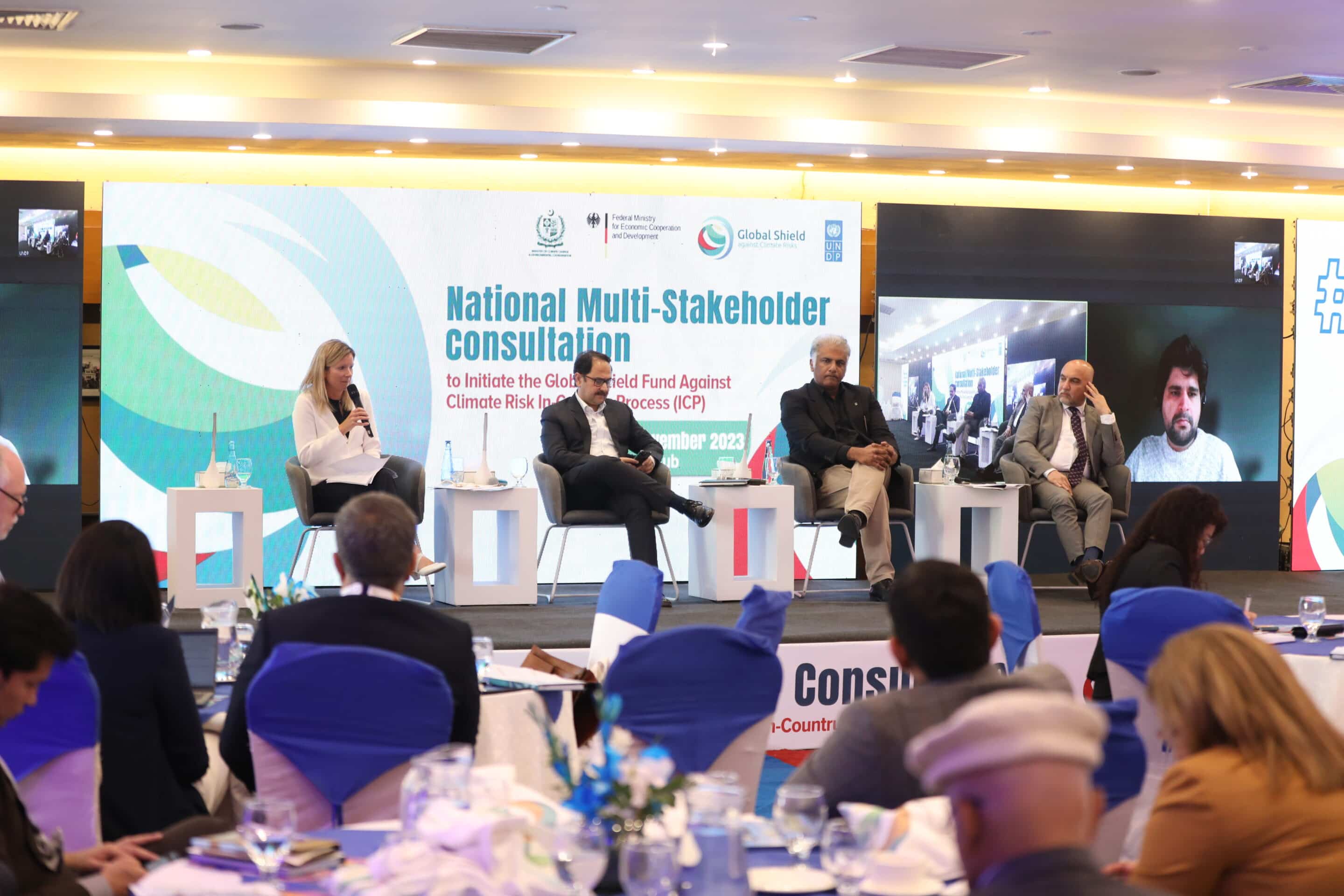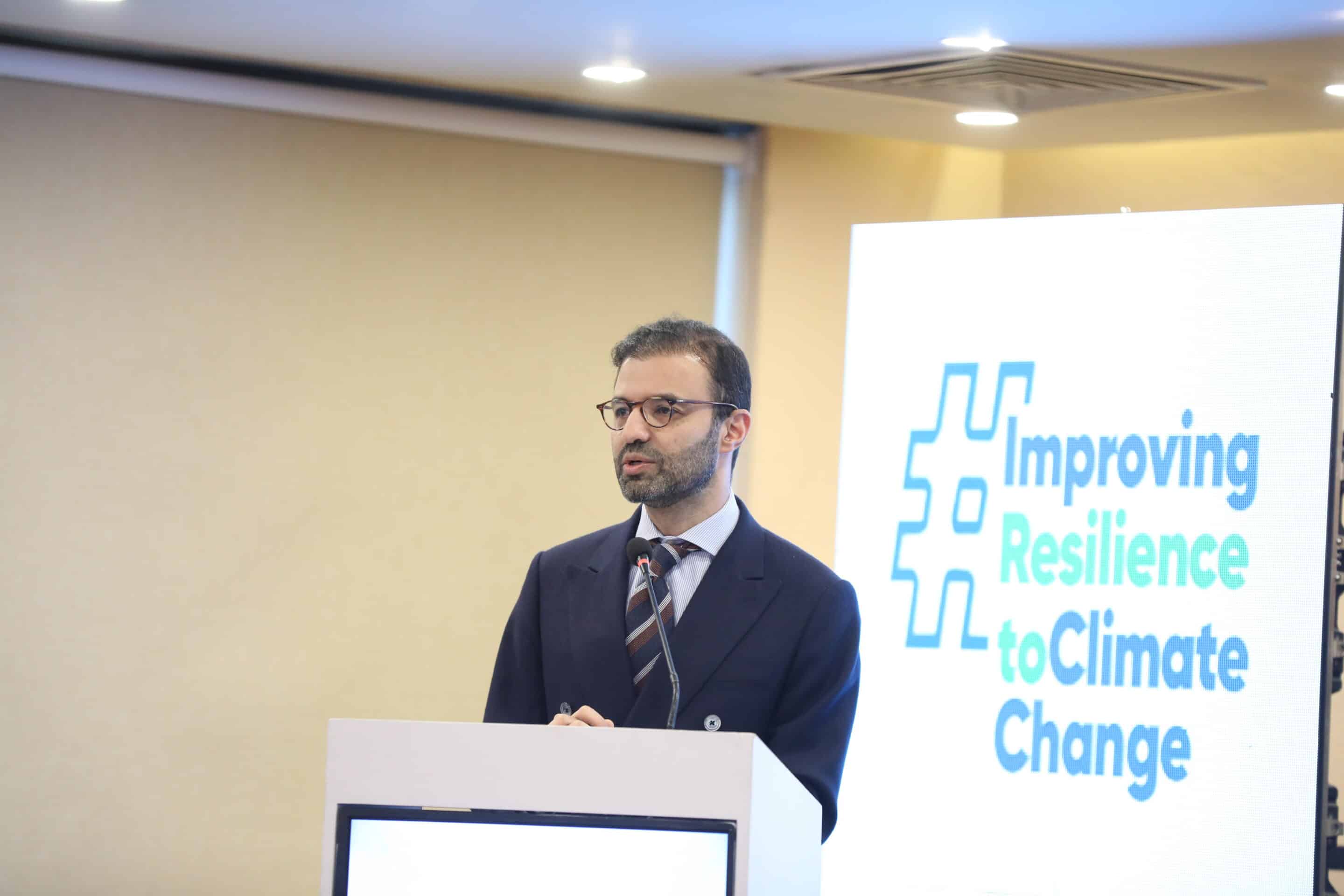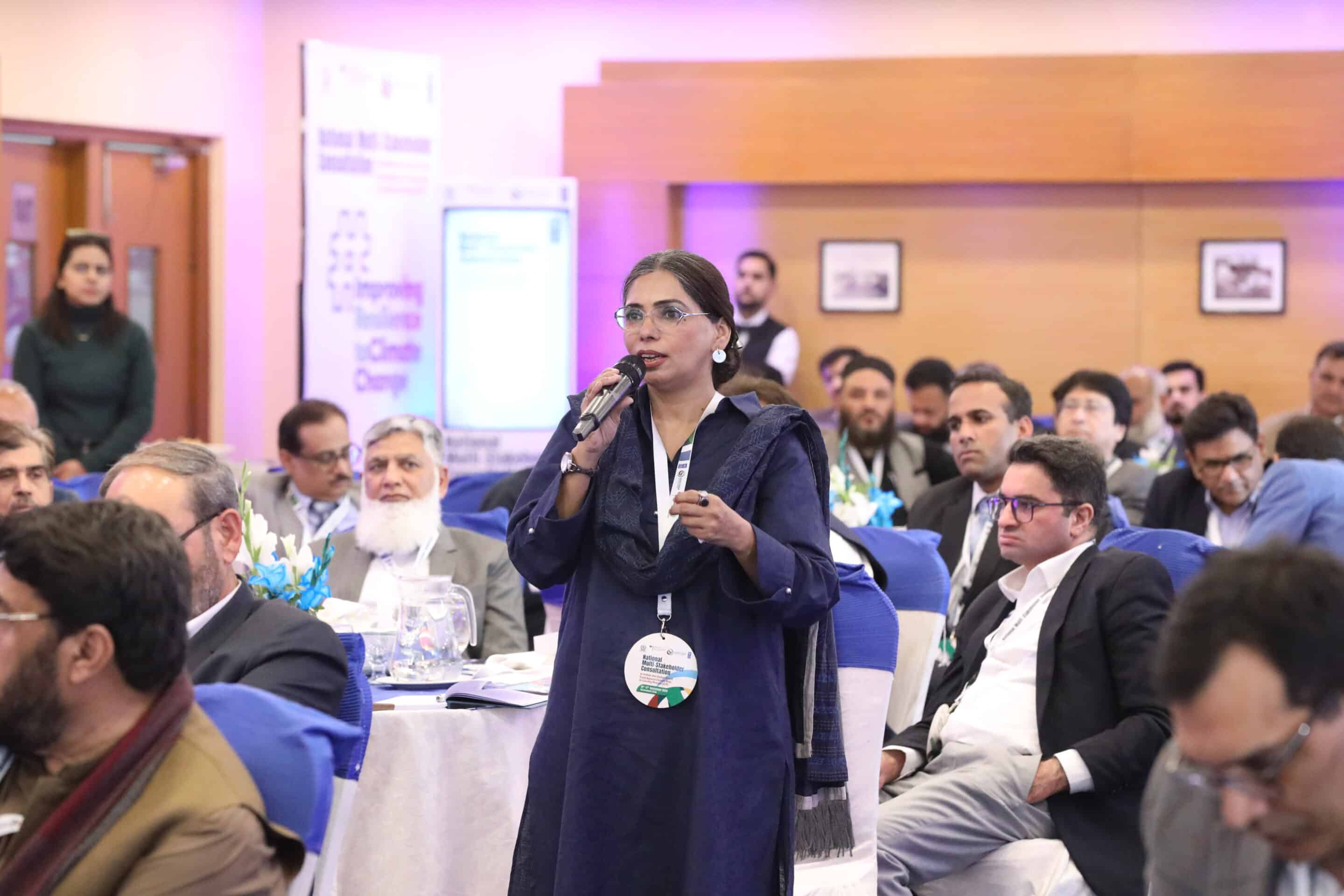On the 16th and 17th of November 2023, Pakistan’s Ministry of Climate Change and Environmental Coordination (MoCC&EC) initiated the Global Shield In-Country Process by hosting a two-day multi-stakeholder consultation in Islamabad. The event was supported by the United Nations Development Program (UNDP) in their capacity as in-country support structure and brought together a wide range of public and private stakeholders from the federal, provincial and district level.
Pakistan is the sixth most populous country in the world and prone to recurring large-scale floods, droughts, and landslides. Nearly every panel over the course of the two days referred to the floods in 2022, which caused approximately $30 billion in losses and damages of which only around 0.7% were insured. According to World Bank figures, this resulted in a 2.2% loss in Pakistan´s GDP with the agricultural sector worse hit accounting for 0.9% of this loss. Against this backdrop, the need for strengthening the financial protection of Pakistan’s economy and communities is clear. The Global Shield aims to provide more and better pre-arranged finance before an event occurs to ensure that, in the future, governments are not pushed further into debt following a disaster but are able to quickly respond and recover.
The launch of Pakistan’s In-Country Process was graced by Ahmad Irfan Aslam, Pakistan’s Federal Minister for Climate Change and Environmental Coordination. He was joined by Samuel Rizk (Resident Representative, UNDP Pakistan), Nilesh Prakash (Senior Advisor, V20 Secretariat), Alfred Grannas (German Ambassador to Pakistan), Syed Mujtaba Hussain (Additional Secretary, MoCC&EC), Jan Kellett (Head of the UNDP Insurance and Risk Finance Facility) and Hannah Grant (Senior Advisor, Global Shield Secretariat), amongst others.

From left to right: Hannah Grant (Senior Advisor, Global Shield Secretariat), Bilal Anwar (CEO, National Disaster and Risk Management Fund), Masood Arshad (Director Water and Environment, World Wildlife Fund), and Syed Mujtaba Hussain (Additional Secretary, MoCC&EC)
© UNDP/Asfar Hussain Shah
The Federal Minister spoke of the need to move to a climate resilient economy, attributing Pakistan’s fall in global rankings from the 23rd to the 40th largest economy largely to the negative impacts the country experienced from climate change over recent years. This set the tone for two days of intense discussions where participants took stock of the great number of risk financing initiatives already underway at not only federal but also at provincial and district levels.

Ahmad Irfan Aslam, Federal Minister for Climate Change and Environmental Coordination
© UNDP/Asfar Hussain Shah
Discussions were also focused on policy and institutional concerns that constrain central, provincial and district governments from working together harmoniously on Climate and Disaster Risk Financing and Insurance (CDRFI). The prevailing view was that, although many good CDRFI policies have been developed in recent years, their impact is limited due to significant implementation challenges, which demonstrate an urgent need for capacity building of relevant authorities at all levels. Availability of good quality data also came to the forefront: While in many cases data was being collected, a lot remains to be done to centralize knowledge and to make it publicly available. Representatives of the insurance sector, as one source of the larger toolkit of instruments that pre-arranged finance provides, shared their views on challenges the sector experiences in scaling up and on how they can contribute to the Global Shield.

Workshop participants © UNDP/Asfar Hussain Shah
After this initial workshop, further consultations on the current state of financial protection and a detailed analysis of protection gaps will follow. This will be used to define priorities for the technical and financial assistance facilitated by the Global Shield. Based on the outcome of the consultations, Pakistan’s Ministry of Climate Change and Environmental Coordination will submit a detailed request to the Global Shield, which will in turn elaborate a tailored support package.
